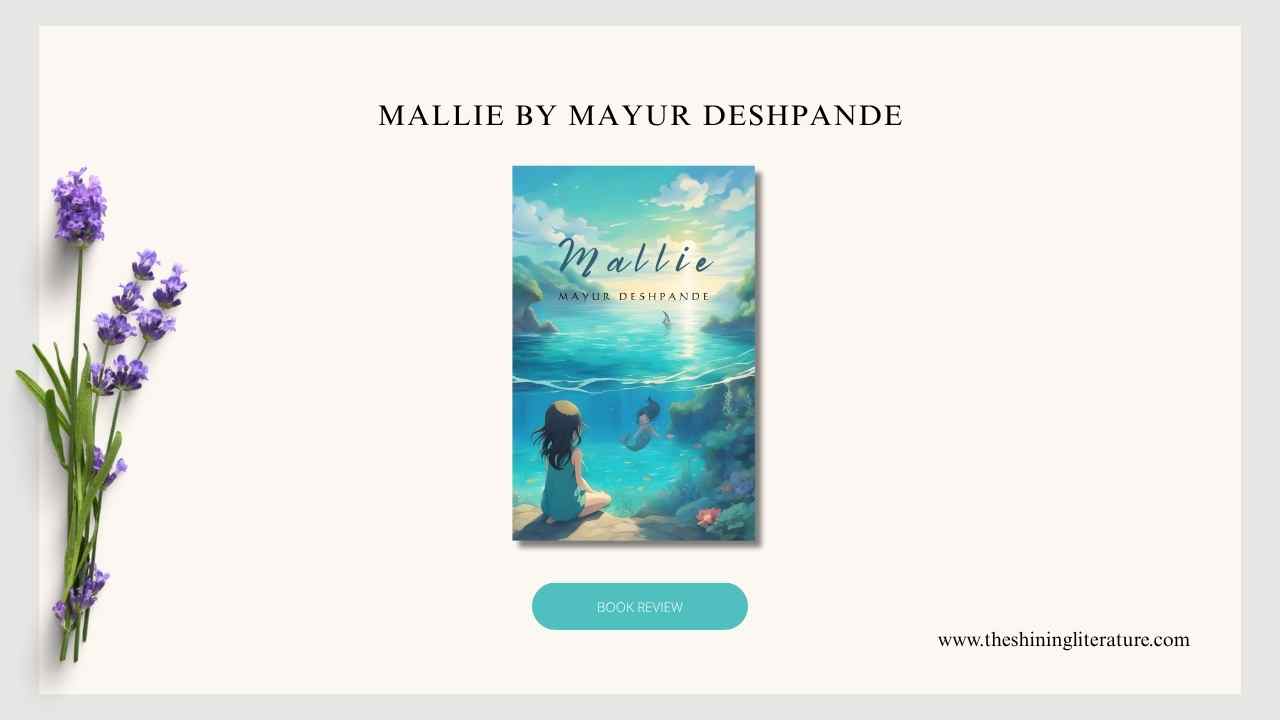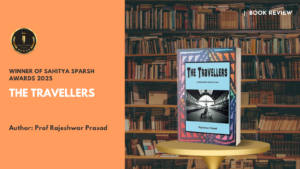Mayur Deshpande’s Mallie is a richly woven tale that blends fantasy and reality into a narrative that is at once mystical and deeply human. It is a novel that invites readers into a world where myths may not be merely stories, and the shimmering illusion of power may not be as golden as it seems. At its heart, Mallie is a story of identity, self-discovery, and the complex, unbreakable bond between a father and his daughter. It is also a bold narrative that questions the rigid societal frameworks that often dictate the lives of those who fall outside of them.
The story revolves around a young girl named Mallie, who is growing up in a world that seems, on the surface, to be built on the myth of the Midas touch — a belief that humanity has the ultimate power, that whatever humans touch turns to gold. This metaphorical Midas touch suggests an illusory dominion, a perceived superiority that underpins human civilization. Mallie, like most children, has been raised on stories — fantastical tales filled with mystical creatures and forgotten realms. But unlike most children, she begins to suspect that these stories may hold more truth than fiction. As she matures, Mallie becomes increasingly aware of the dissonance between what she has been taught and what she senses around her. The world she inhabits, glittering with the illusion of control and privilege, begins to crack at its edges.
What makes Mallie particularly captivating is the way Deshpande uses fantasy not merely as an escape, but as a lens through which we examine the deeper truths of our own world. The fantasy elements — the hidden creatures, the ancient powers, the concealed worlds — are not gratuitous or ornamental. They serve a thematic purpose, allowing the author to question the constructs of power, control, and societal hierarchy. As Mallie’s journey unfolds, the reader is drawn into a larger question: what if the stories we’ve been told are not just imaginative creations, but veiled histories, buried truths obscured for the sake of human ego?
At the same time, Mallie remains grounded in its emotional core: the relationship between Mallie and her father. This dynamic, inspired by Deshpande’s own experiences as a father, is rendered with sensitivity and nuance. The father figure in the novel is both protector and teacher, a quiet guardian whose love manifests not in grand gestures, but in his unwavering efforts to shield his daughter from the world’s harshness. It is in these interactions that the novel finds some of its most tender and poignant moments. The father’s role is not to solve all of Mallie’s problems, but to equip her with the strength to face them — a distinction that speaks to the deeper themes of independence, resilience, and emotional maturity.
Deshpande’s writing is thoughtful and measured, with a clarity that serves the narrative well. He moves fluidly between the fantastical and the real, using the former to illuminate the latter. The prose is poetic at times, yet never overwrought. There is a careful balance in tone — wonder and curiosity are tinged with an undercurrent of tension, of something ancient and powerful watching from the shadows. This tension drives the narrative forward, compelling the reader to keep turning the pages even as they grapple with the philosophical questions the story raises.
One of the strengths of the novel lies in its world-building. Deshpande introduces readers to a hidden layer of reality, populated by mystical creatures who have long concealed themselves from humankind. These beings are not simply monsters or magical archetypes; they are intelligent, strategic, and deeply aware of the destructive potential of human ambition. Their decision to remain hidden is both an act of self-preservation and a commentary on human arrogance. As Mallie begins to uncover their existence, she is forced to confront the uncomfortable truth that humanity may not be the apex of creation it believes itself to be. This revelation is not merely fantastical — it serves as a metaphor for broader social truths about power, marginalization, and the cost of human progress.
Yet, while the story is ambitious in its themes and scope, it remains deeply personal. Mallie is a relatable protagonist, not because she is perfect or heroic in a traditional sense, but because she is vulnerable, curious, and determined. Her struggle is not just with external threats, but with the internal conflict of deciding who she wants to become. Should she conform to the expectations of her society, or should she chart her own path, even if that means stepping into the unknown? This inner conflict is something that resonates universally, particularly with young adults navigating their own journeys of self-definition.
It is also worth noting how subtly Deshpande critiques the social systems that govern our lives. The “rigid man-made hierarchy” that Mallie encounters is not described in overly political terms, but its influence is unmistakable. The book reflects on how systems of power often stifle individual potential and how difficult it is to break free from them without losing oneself. Mallie’s journey becomes symbolic of a broader quest for autonomy — not just for herself, but for all those who find themselves caught in the machinery of expectation and conformity.
As a debut fantasy novel, Mallie impresses with its layered narrative, emotional depth, and philosophical undercurrents. It’s clear that Deshpande is not merely interested in telling a good story — though he does — but in exploring the deeper implications of the tales we tell ourselves and the truths we choose to ignore. His background in analytical thinking is evident in the novel’s structure and thematic clarity, but it’s his heart — his experience as a father and his insight into human emotion — that gives the story its soul.
In a literary landscape often dominated by high-stakes plots and fast-paced action, Mallie dares to slow down and ask meaningful questions. It blends myth and meaning, story and substance, into a novel that lingers in the reader’s mind long after the final page. It encourages readers — especially younger ones — to look beyond what is visible, to challenge inherited beliefs, and to seek out the truth, even if it lies hidden in the shadow of stories. For anyone who has ever wondered if there’s more to the world than what meets the eye, Mallie offers an answer: yes, and the truth is more beautiful — and more dangerous — than you can imagine.




